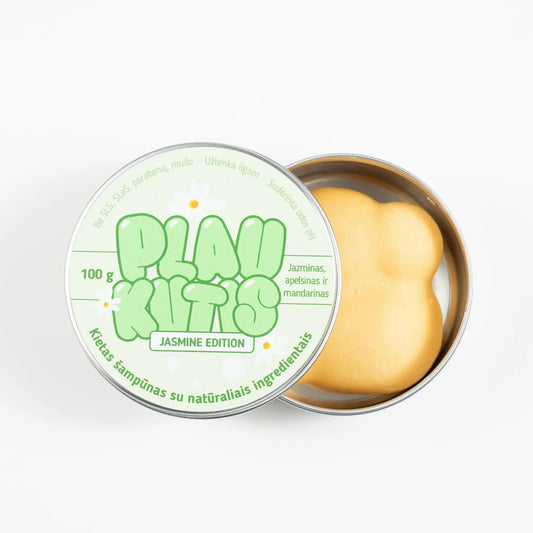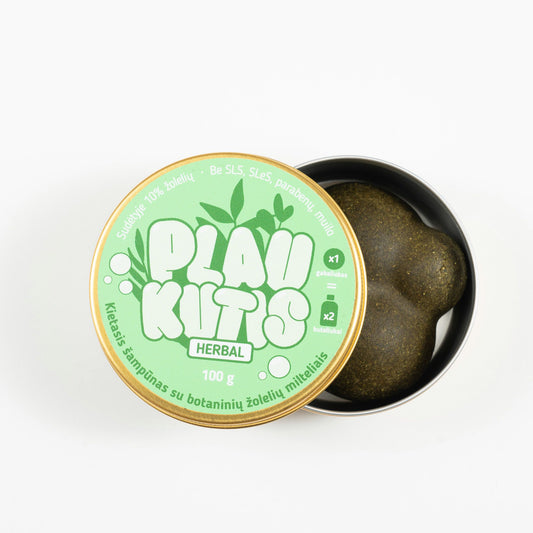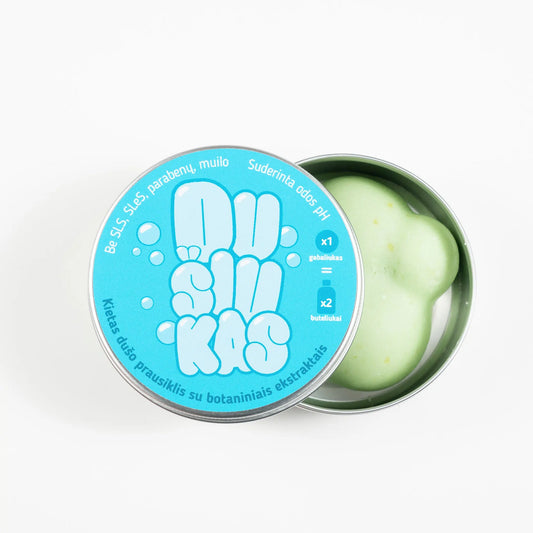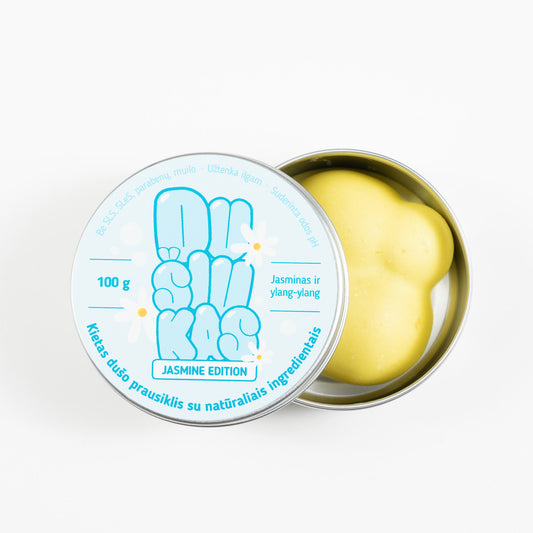When it comes to choosing the right shampoo or conditioner, the choice can be complicated due to the wide range of products available. To make better hair care decisions, it is important to know what ingredients are hiding in hair care products. By understanding how each ingredient affects your hair and scalp, you can choose products that are tailored to your hair type and needs.

In this article, we’ll explore the most common ingredients found in shampoos and conditioners, discussing their functions, benefits, and potential drawbacks. Whether you’re avoiding sulfates, concerned about silicones, or looking for natural oils, this guide will help you understand the ingredients and make informed decisions about your hair care products.
Sulfates: effective, but potentially drying?
Sulfates are one of the most commonly used ingredients in shampoos, which lather well and cleanse hair. However, they have recently come under fire for their potential to dry and make hair sensitive.
What are sulfates and how do they work?
Sulfates, such as sodium lauryl sulfate (SLS) and sodium laureth sulfate (SLES), are surfactants that help remove dirt, oil, and product residue from your hair. They break down oils and allow them to be easily rinsed away with water. This deep cleansing effect is especially beneficial for oily hair.

However, a 2018 study published in the Journal of Cosmetic Science found that sulfates can reduce hair moisture by up to 15% after just one wash, especially for people with dry or curly hair. Sulfates can strip hair of its natural oils, making it dry and more vulnerable.

Who should avoid sulfates?
While sulfates are effective at cleansing hair, they can be too harsh for those with color-treated, permed, or damaged hair. If your hair feels dry and your scalp feels sensitive after washing, it may be a sign that you should switch to a sulfate-free shampoo. A 2020 study found that 70% of people with sensitive scalps said that sulfate-free shampoos reduced irritation and itching.
Silicones: smooth and shiny hair or build up and weigh hair down?
Silicones are synthetic ingredients often used in conditioners and hair styling products. They add smoothness and shine to hair, but their long-term effects may vary depending on your hair type.

How do silicones affect hair?
Silicones create a thin protective layer around each hair strand, locking in moisture and giving hair a smooth, frizz-free surface. Commonly used silicones include dimethicone, cyclopentasiloxane, and amodimicone.
- Dimethicone : The most common silicone that gives hair a silky feel, but it can be too heavy for fine hair.
- Cyclopentasiloxane : A lighter silicone suitable for fine hair because it evaporates quickly without leaving a heavy residue.
- Amodimicon : A silicone that collects in damaged areas of the hair and washes out easily, so there is less buildup on the hair.
Silicone buildup: fact or myth?
Silicones have many benefits, such as reducing frizz and adding shine, but they can build up in your hair over time. A 2020 consumer study found that 45% of women who used silicone-based conditioners experienced build-up within six months, making their hair feel heavy and lifeless. To avoid this, use a clarifying shampoo once a week.
Natural oils: nourishing ingredients
Natural oils are popular ingredients in many shampoos and conditioners due to their nourishing, moisturizing, and protective properties. They are often chosen by those who want to moisturize their hair without synthetic ingredients.

The most commonly used natural oils in hair care
- Coconut oil : It is renowned for its ability to deeply condition hair, penetrating the hair shaft and reducing protein loss. A 2016 study published in the International Journal of Trichology found that regular use of coconut oil reduced hair breakage by up to 20% among participants with dry and damaged hair.
- Argan Oil : Rich in vitamin E and fatty acids, argan oil is renowned for its ability to moisturize, add shine, and reduce frizz. A 2017 study found that using argan oil before using hot tools reduced hair damage by up to 30% .
- Jojoba Oil : Similar to the scalp's natural sebum, jojoba oil is lightweight and helps balance sebum production, making it suitable for all hair types.

Why are natural oils effective?
Natural oils offer a variety of benefits, including moisturizing, protecting against environmental aggressors, and improving hair elasticity. They also help protect hair from UV rays and pollution. However, it’s important to choose the right oil for your hair type. For example, fine hair can become too heavy with coconut oil, while thick, curly hair can handle this extra moisture well.
Preservatives and flavorings: necessary or problematic?
Preservatives and fragrances are important in many shampoos and conditioners because they extend the shelf life of the products, but they can also cause sensitivities or allergic reactions.
Why are preservatives needed in hair care products?
Products that contain water are susceptible to bacterial growth, so preservatives are essential. The most commonly used preservatives are parabens, phenoxyethanol, and formaldehyde compounds. These ingredients prevent the growth of mold and bacteria, ensuring that the products are safe to use.
However, some preservatives, such as parabens, have come under fire for their potential negative health effects. A 2019 study by the Environmental Working Group found that 45% of consumers actively seek out products labeled “paraben-free” due to concerns about potential health risks.
Fragrances and sensitivity to them
Fragrances are added to hair care products to make them smell nice, but they can be a common cause of scalp irritation and allergic reactions. Synthetic fragrances are particularly associated with sensitivity. The American Academy of Dermatology reports that 30% of people with eczema experience a worsening of their condition due to the use of synthetic fragrances in personal care products.
If you have sensitive skin or scalp, it's a good idea to choose fragrance-free products or those that use natural essential oils.
Myth busting or interesting facts
- Myth : "Sulfates cause hair loss."
Fact : There is no scientific evidence that sulfates cause hair loss. However, sulfates can irritate the scalp and cause dryness, which can cause temporary hair loss in some people. - Fun fact : Coconut oil is one of the few oils scientifically proven to penetrate the hair shaft. A 2003 study found that it can reduce protein loss from hair by up to 50% , making it a great choice for damaged hair.
- Myth : "Silicones clog hair follicles and cause scalp acne."
Fact : Silicones do not directly clog hair follicles. However, the buildup of silicones on the scalp can cause problems if they are not properly removed during cleansing procedures. - Fun fact : A 2018 study found that products containing natural oils, such as argan oil, increase hair's tensile strength by up to 30% , making hair more resistant to heat styling and combing.
- Myth : "Preservatives are harmful and unnecessary."
Fact : Preservatives are essential to protect water-based products from bacteria and mold. While some preservatives, such as parabens, are controversial, many modern formulas use safer alternatives, such as phenoxyethanol.

Practical tips or solutions
- Avoid sulfates for sensitive hair : If your hair or scalp feels dry or irritated after washing, choose sulfate-free shampoos.
- Managing Silicone Buildup : If you use silicone-based conditioners, use a clarifying shampoo once a week to avoid residue that can weigh down your hair.
- Choose the right oil : Choose lighter oils like jojoba oil if you have thin hair, while coconut or argan oil is great for thicker and curly hair.
- Fragrance-free options for sensitive scalps : If your scalp is prone to irritation, look for products that are fragrance-free or naturally scented with essential oils.
- Protect your hair from preservatives : If you're concerned about preservatives, choose products labeled "paraben-free" or look for formulas that contain modern preservatives like phenoxyethanol, which are considered safer.
Frequently asked questions
Q: Can sulfates cause permanent hair damage?
A: Sulfates do not cause permanent damage, but they can cause dryness and irritation. For people with dry, curly, or color-treated hair, sulfate-free shampoos help retain moisture and protect the hair.
Q: Do silicones accumulate in hair?
A: Yes, silicones can build up in your hair and over time cause it to feel heavy or greasy. You can prevent this by using a clarifying shampoo regularly.
Q: Are natural oils suitable for all hair types?
A: Most natural oils, such as argan and jojoba, are lightweight and suitable for all hair types. However, thicker oils, such as coconut oil, may be too heavy for fine hair but are great for curly or dry hair.
Q: Are preservatives in hair care products harmful?
A: Preservatives prevent bacteria from growing in products that contain water. While some preservatives, such as parabens, are controversial, many products now use safer alternatives, such as phenoxyethanol.
Q: Are fragrances in shampoo necessary?
A: Fragrances are not necessary for the product to work, but they do make it more pleasant to use. If you have sensitive skin, it is better to choose products that are fragrance-free or contain natural essential oils.
Conclusion
Understanding the ingredients in your shampoos and conditioners can help you make better decisions about your hair care routine. Whether you avoid sulfates or use natural oils, choosing the right products can help you achieve healthier, shinier, and more manageable hair. Knowing what works for your hair can help you create a routine that will ensure long-term health and beauty.













